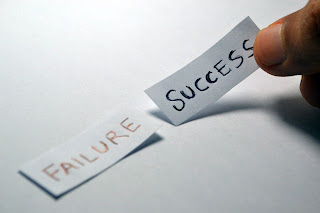A failed IVF cycle can result in an outpouring of emotions. Going into the cycle, you were filled with anticipation and growing enthusiasm, hoping that this would be the start of your family, but also with worry. Will it be successful? You and your partner may experience loss and even rage if a cycle fails. What went wrong, exactly? Is it anyone's fault because IVF failed? Should you give it another shot?
It's natural to be sad about this loss, but try not to put the blame on yourself or your partner. It's likely that the failure was caused by factors outside your control. What happened and what you may do next will be explained by your IVF doctor. The following are some of the most prevalent reasons why an IVF cycle fails.
1) Quality of Embryos
The quality of the embryo is the most common reason for an IVF cycle's failure. Because many embryos are defective in some way, they are unable to implant after being transferred to the uterus. Even embryos that appear to be healthy in the lab can have abnormalities that lead them to perish rather than grow. It is almost never because your uterus is damaged and you are unable to carry a child. Because the embryo is not healthy enough to grow, it does not implant.
2) The Eggs' Age
The age of the eggs is more essential than the age of the lady undergoing IVF therapy when it comes to IVF. As a woman gets older, her ovarian reserve (the quality and quantity of her eggs) begins to deteriorate. This has an impact on her odds of IVF success as well. On average, only approximately 25% of transferred embryos result in live births of children. This, however, is highly dependent on the age of the woman's eggs. The implantation rate for women under 35 who use their own eggs for IVF is around 45 percent. Women between the ages of 40 and 42 who use their own eggs have a 15% chance of implantation.
IVF success rates for older women who use donor eggs provided by younger women are essentially identical to those of younger women. When it comes to creating healthy embryos, egg quality is crucial, and younger eggs are usually better.
3) Ovarian Response
The ovaries of some women do not respond well enough to fertility medicines to produce numerous eggs. If a woman is over 37 , has low AMH levels or has high FSH levels, she may not be able to create enough eggs to produce a large number of embryos for Transfer and possible implantation. When this happens, the chances of IVF failure are increased. Your reproductive endocrinologist will assess the situation and may alter your fertility drugs for the next IVF cycle.
4) Problems with Chromosomal DNA
Chromosomal abnormalities in the embryo are one of the most common causes of IVF failure. This holds true for all human embryos, whether they were created naturally or in an embryology lab. Most losses and failures to implant in an IVF cycle are caused by these disorders. According to studies, the incidence of choromosomal abnormalities in women's eggs begins to rise in their 30s as they get older. Up to 75% of a woman's eggs have chromosomal abnormalities by her mid-40s. As a guy gets older, his sperm accumulates more chromosomal defects, but at a much slower rate than a woman's eggs. Ladies, it's unjust, but it's true.
Your fertility expert may offer PGS, or preimplantation genetic screening, for your future IVF cycle if you've had a failed IVF cycle. PGS examines a few cells from an embryo to see if it has the correct amount of chromosomes.
5) IVF Lab Quality and Fertility Clinic Skills
IVF is both a science and an art. Is it better to go with a seasoned reproductive endocrinologist with a proven track record or a fresh-faced young doctor just out of fellowship who may be on the cutting edge of practise? What are the success percentages of the practise with ladies your age? Is the lab well-known and employs knowledgeable personnel? Do you have confidence in your doctor's ability to listen to you and resolve your concerns? Consider how you and your partner feel before committing to a second IVF cycle.
6) Factors related to your Lifestyle
Many fertility clinics demand that women quit smoking for at least three months before beginning IVF therapy. Smoking women require more IVF cycles to conceive and are far more likely to miscarry than non-smoking women. Overweight or underweight women have a lower chance of having a successful IVF procedure. Maintaining a healthy weight is the bottom line. If you're overweight, decreasing just 10% of your body weight can improve your chances of getting pregnant
Need help in getting pregnant ? Please send me your medical details by filling in the form at www.drmalpani.com/free-second-opinion so that I can guide you !

No comments:
Post a Comment